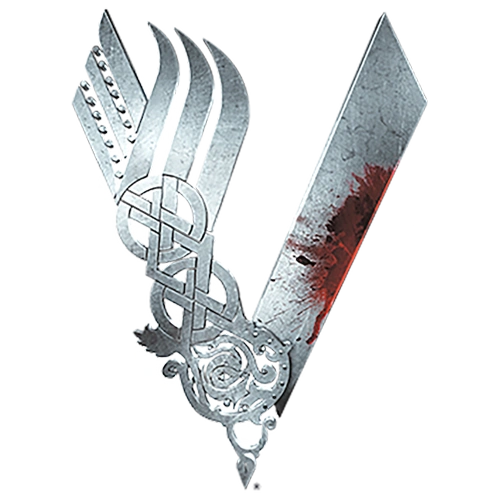
Loki, as depicted in Vikings
Loki or (/ˈlɒkɪ/) (pronounced "LOAK-ee") was a Jötunn and the Norse God of mischief and deception.
==
Biography ==
Loki is the son of the giants, Farbauti and Laufey, he also has two brothers Helblinde and Býleistr.
Loki is known as the trickster God, he is not evil, nor is he good, he lives in Asgard even though he is from Jotunheim (the land of the giants). He loves to make trouble for anyone and everyone especially for the Gods and Goddesses in Asgard. Loki is both cunning and clever and he always comes up with new ideas to annoy and bring people in the uttermost embarrassments. Loki just loves to prank people in all the ways he can think of as long as he thinks it's funny. After he get's someone in trouble with his pranks, he often saves them so he would look like the hero of the day.
Loki was first married to the Jötunn Angrboða who gave birth to Hel, the Goddess of the grave, Jörmungandr, the Great Serpent who slays Thor during Ragnarök and Fenrir, the Wolf who bites off one of the hands of Tyr and who kills Óðinn during Ragnarok. Loki was also the Mother of Odin's horse, Sleipnir after shape-shifting into a mare and courting the stallion Svaðilfari, as is recounted in the tale of the fortification of Asgard. He then later marries the Goddess Sigyn and they have two sons whose names were Vali and the other son was variously rendered as either Narfi or Nari.
Loki was said to have entered into a blood brotherhood with Odin, and whether it was this or his right that gave him access to Asgard is unknown. After Loki had been chased away by Thor for insulting all the Gods and Goddesses, Loki was then sought out and bound to a rock by the entrails of his son Narfi, who had been torn to pieces by his son, Vali, who had been transformed into a ravenous wolf. The faithful Sigyn kept watch over her husband, catching the poison from the serpent that Skadi placed over Loki's head. It was said that, when Sigyn left to empty the bowl, the poison would drip into Loki's eyes. His writhing from the pain caused earthquakes.
He was chained until the day of Ragnarök, the end of the Gods, where he will fight amongst the Jotnar and face Heimdallr. Upon the field of Vígríðr, the two will slay each other.

In the series, Loki is blamed by one of the crew for the difficulty of the voyage, saying Ragnar is partnered with the God of tricks. ("Wrath of the Northmen").
Floki principally worships Loki and believes himself to be a descendant of the God. Ragnar notices that Floki is a lot like Loki, only not a God. King Horik and Floki quip over a story about Loki stealing a necklace that belonged to Freyja while in the shape of a fly. The idol Bjorn discovers in Floki's workshop is specified as Loki in the script. A hearth-stone featured in wrath of the Northmen, a replica of the Snapstun stone, which features the image of Loki.
Personality
Early on, Loki was considered to be useful and clever, his quick wit was often useful against enemies of the Gods, but mischief and finally malevolence eventually took over at the expense of many Gods, particularly Thor.
Loki also demonstrates a complete lack of concern for the well-being for the other fellow Gods, a trait which could be discerned, in vague outline, merely by considering his offspring. Loki often runs afoul not only of societal expectations, but also of what we today might call "The laws of nature".
In tales Loki is portrayed as a scheming coward who cares only for shallow pleasures and self-preservation. He’s by turn playful, malicious, and helpful, but he’s always irreverent and nihilistic.
Trivia
- Loki in Old Norse means "To Break".
- Loki is a shape-shifter and has been known to transform himself into a salmon, mare, seal a fly and possibly an elderly woman.
